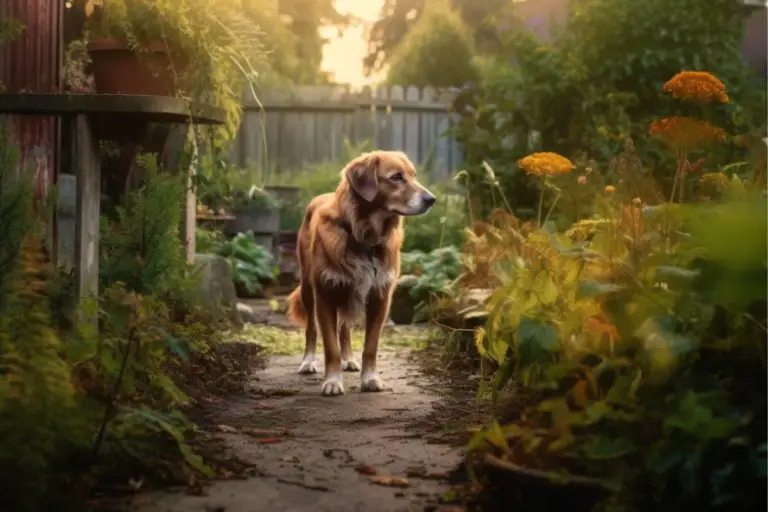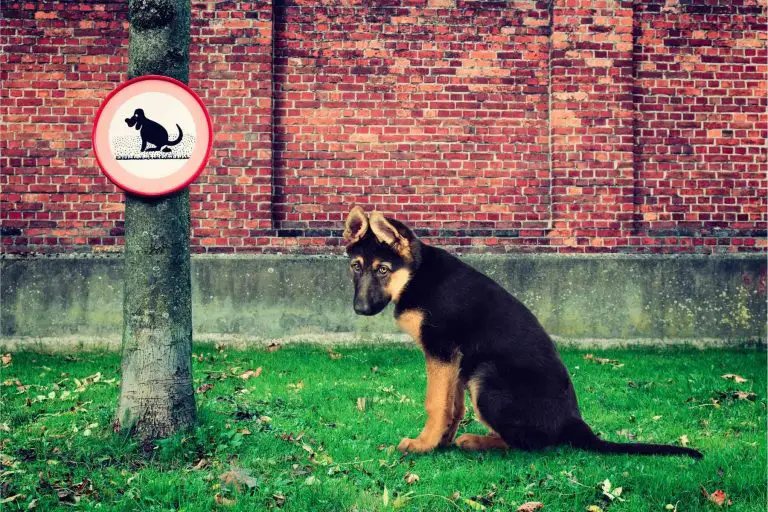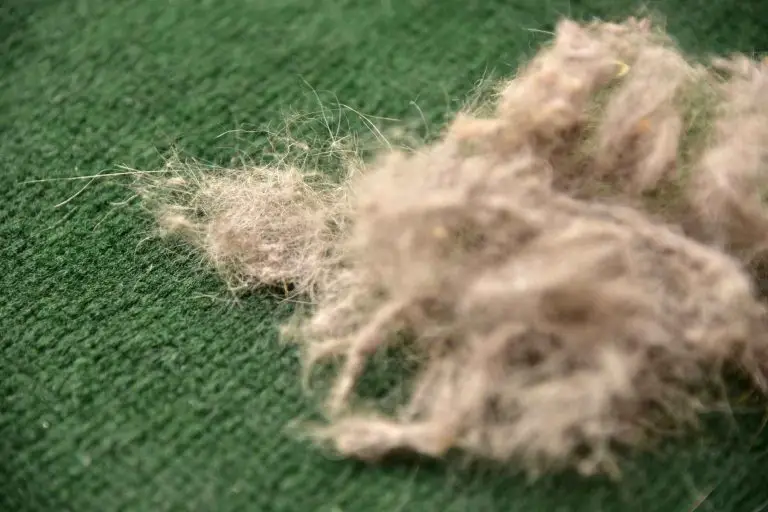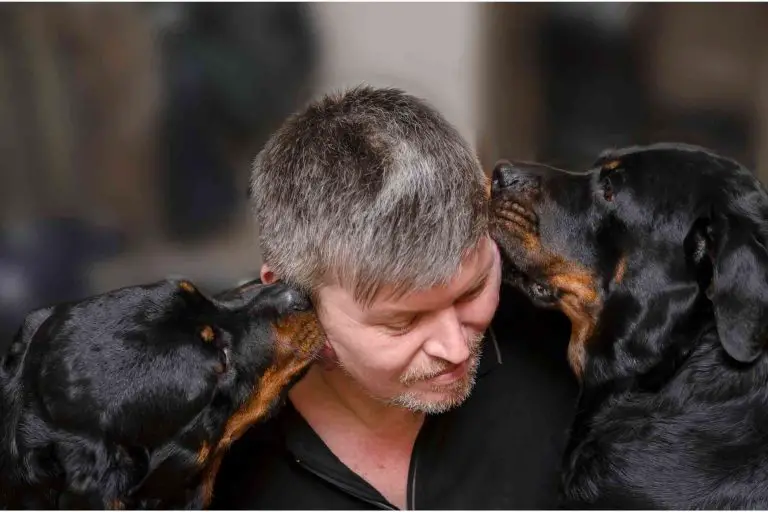Why Does My Dog Sound Like a Pig?

Many dog owners have found themselves puzzled by their canine companions occasionally sounding like a pig when they breathe, snort, or even snore. This phenomenon can indeed be surprising, but there are a few reasonable explanations for why a dog might produce these noises.
Firstly, the anatomy and structure of a dog’s respiratory system can play a significant role in the sounds they make. Dogs with shorter snouts or flatter faces, such as Bulldogs and Pugs, are prone to Brachycephalic Obstructive Airway Syndrome (BOAS). This condition can lead to restricted airflow, causing the dog to make snorting or grunting noises similar to those of a pig.
Additionally, some dogs develop a harmless condition called reverse sneezing. It’s characterized by episodes of rapid inhalation, often accompanied by snorting or gagging sounds. While this can be alarming to witness, it’s usually not a cause for concern and may be another reason a dog might sound like a pig.
Brachycephalic Breeds and Pig-Like Sounds
Brachycephalic breeds are a category of dogs known for their unique facial structure, which can sometimes cause them to make pig-like sounds. While their appearance is charming and distinctive, it is essential to understand the reasons behind these peculiar noises.
Characteristics of Brachycephalic Breeds
Brachycephalic breeds, such as Boxer, Shih Tzu, Affenpinscher, Chow Chow and Boston Terrier, have a short snout and a flat face. This physical trait gives them a cute and appealing look, but it also affects their respiratory system. Besides the different noises, these breeds are also prone to a few health issues, showcasing the importance of understanding their anatomy.
List of Brachycephalic Dog Breeds (Flat-Faced Dogs)
| Affenpinscher | Dogue de Bordeaux |
| Boxer | English Toy Spaniel |
| Bulldog | French Bulldog |
| Brussels Griffon | Japanese Chin |
| Bullmastiff | Lhasa Apso |
| Boston Terrier | Pekingese |
| Cane Corso | Pug |
| Chow Chow | Shih Tzu |
Genetics and Shorter Airway
The pig-like sounds produced by brachycephalic dogs can be attributed to their genetics. Their shortened airway leads to a restricted air passage, causing these breeds to struggle for breath. As a consequence, they tend to snort and produce pig-like sounds.
Genetically inherited traits, such as shorter nasal passages and elongated soft palates, can contribute to a condition called Brachycephalic Obstructive Airway Syndrome (BOAS). This respiratory ailment can cause excessive panting, snorting, and noisy breathing in affected dogs.
In conclusion, it has become evident that brachycephalic breeds generate pig-like sounds due to their flat facial structure, genetics, and a shorter airway. The snorting, snuffling, and other noises are distinctive characteristics triggered by their inherited physical traits.
Reverse Sneezing and Other Respiratory Issues
Dogs can sometimes sound like pigs due to specific respiratory issues, with reverse sneezing being one of the most common causes. In this section we will discuss reverse sneezing, collapsed trachea, and laryngeal paralysis – all conditions that can contribute to your dog’s unusual sounds.
Causes of Reverse Sneezing
Reverse sneezing occurs when a dog experiences a rapid and repeated inhalation through its nose. It can sound like a snorting or wheezing noise and can be triggered by various factors:
- Irritation of the nasal passages, such as from allergies, dust, or smoke
- Nasal mites, which can cause inflammation
- Respiratory infections that lead to inflammation of the nasal passages
- An elongated soft palate, common in brachycephalic breeds
Although it can sound alarming, reverse sneezing is usually harmless and resolves on its own without causing any distress to the dog.

Collapsed Trachea
A collapsed trachea is a more serious condition that can cause a dog to make pig-like noises. The trachea, or windpipe, supports the dog’s breathing, and when it collapses, the airflow is restricted, causing coughing, wheezing, and labored breathing. This condition is more common in small breed dogs and can be congenital or develop gradually over time. Symptoms can be triggered by factors such as:
- Exercise
- Excitement
- Exposure to heat or humidity
- Pressure on the neck from pulling on a collar
Treatment for a collapsed trachea can include weight management, medications to reduce inflammation, and in severe cases, surgery.
Laryngeal Paralysis
Laryngeal paralysis is a condition where the dog’s larynx, or voice box, does not function properly, causing difficulty breathing and producing sounds similar to choking or honking. It occurs when the nerves controlling the larynx are damaged, preventing the muscles from opening and closing as they should. Common causes of laryngeal paralysis include:
- Age-related degeneration of the nerves
- Trauma or injury to the neck
- Underlying neuromuscular diseases
Treatment for laryngeal paralysis may involve medications to manage symptoms, lifestyle modifications to reduce risk factors, and surgery to improve airway function.
Behavior and Environmental Factors
Dogs can sometimes produce snorting or pig-like sounds due to various behavior and environmental factors.
Stress and Excitement
Stress or excitement can lead to temporary respiratory changes in dogs. These situations can cause dogs to experience rapid or shallow breathing, which may result in snorting noises. A dog’s snorting can be a physiological response to calm themselves down or to communicate their emotional state to their owner.
Irritants and Allergens
Exposure to irritants or allergens in the environment can also cause dogs to make pig-like sounds. This can happen when irritants enter the nasal passage, causing your dog to sneeze or snort. Common irritants include:
- Smoke
- Pollen
- Dust
- Chemicals
If a dog experiences frequent snorting, it might be worth investigating the environment for potential allergens or irritants and taking measures to remove them or limit exposure.
Harnesses and Collars
Improperly fitted harnesses or collars may lead to respiratory problems and snorting sounds in dogs. Tight collars can press on the trachea, leading to restricted airflow and potential respiratory issues. An ill-fitting harness may cause discomfort and stress, resulting in pig-like noises due to the combination of physical pressure and emotional distress.
To avoid these issues, ensure your dog has a properly fitted collar and harness to prevent undue stress on their throat and minimize snorting. A well-fitted harness can distribute pressure evenly across the dog’s chest without causing discomfort or excessive pressure on the trachea.

Health Conditions and Veterinary Care
When a dog sounds like a pig, several health conditions could be the culprit. Two common causes are soft palate issues and infections or obesity and excess weight. Understanding these issues and recognizing when to seek veterinary care is essential for your dog’s well-being.
Soft Palate Issues and Infections
Dogs with elongated soft palates or infections in their nasal passages can make sounds similar to a pig. The following factors may influence these conditions:
- Allergies: Allergens can cause inflammation in the nasal passages, impeding airflow and leading to snorting sounds.
- Infection: Infection in the respiratory system can lead to nasal discharge and even bleeding from the nose, which may cause snorting or pig-like noises.
- Genetics: Some dog breeds are predisposed to soft palate issues due to their facial structure, making them more likely to produce pig-like sounds.
For issues related to the soft palate and infections, treatment may include medication, such as antihistamines to manage allergies or antibiotics to combat infection. In severe cases, your veterinarian may recommend surgical intervention.
Obesity and Excess Weight
Obesity and excess weight can also cause a dog to sound like a pig. Overweight pets often have difficulty breathing, leading to snorting or grunting sounds as they try to take in air. Helping your dog maintain a healthy weight can mitigate or prevent this issue. Consider these tips for weight loss:
- Control portion sizes and reduce calorie intake
- Incorporate low-calorie, high-nutrient foods into your dog’s diet
- Ensure your pet gets plenty of exercise and regular playtime
Signs for Veterinary Consultation
Knowing when to consult a veterinarian is crucial for maintaining your dog’s health. The following signs may indicate that it’s time to visit your vet:
- Persistent or worsening snorting and grunting sounds
- Nasal discharge or bleeding from the nose
- Difficulty breathing or increased respiratory effort
- Lethargy or decreased interest in activities your dog once enjoyed
Your veterinarian may perform a physical exam or recommend diagnostics such as x-rays to identify the underlying cause of your dog’s pig-like sounds. With appropriate treatment and care, most dogs can return to their normal, happy selves.
Conclusion
In conclusion, a dog may sound like a pig for several reasons, such as breed characteristics, physical issues or emotional responses. It is important for owners to closely observe their dog’s behaviors and consult a veterinarian if necessary. Gaining a better understanding of the specific causes will help owners provide proper care and support for their pet, ensuring its well-being and happiness.
Some key takeaways include:
- Observing if the breathing sounds are consistent or occasional.
- Considering breed-specific traits or genetic factors of your dog.
- Consulting a veterinarian if the sounds are accompanied by discomfort or other signs of illness.
By paying attention to your dog’s health and well-being, you can help ensure that it lives a comfortable and happy life, regardless of whether it sounds like a pig or not.






